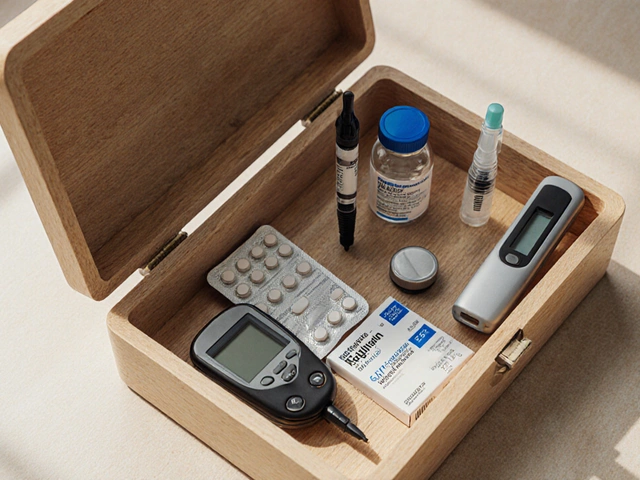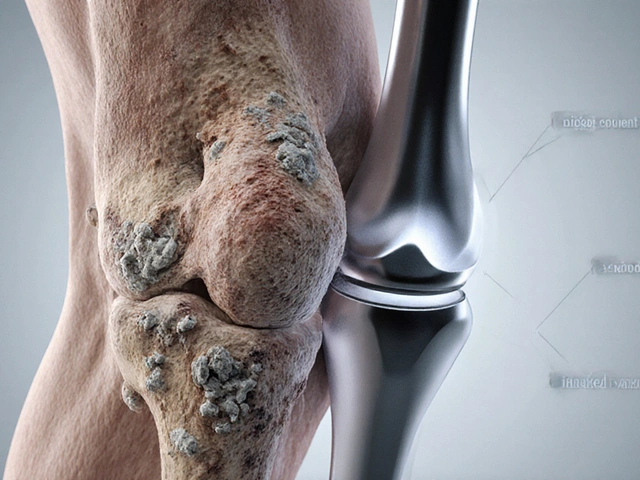For a drug that’s handed out like traffic jam flyers in Bangalore, metformin raises more nerves than you’d expect. Some folks get jittery hearing, "Metformin is hard on your kidneys." Others swear it messes with the liver. But what’s the truth? If you—or someone you love—pop this little white pill for type 2 diabetes, you deserve more than hearsay. You want the real scoop, minus the scientific mumbo-jumbo or scare tactics.
How Metformin Works Inside Your Body
Before jumping to the organs, let’s talk about what metformin actually does. Metformin is the world’s most prescribed diabetes drug because it’s pretty good at its job: lowering blood sugar. It works by stopping your liver from pumping out too much glucose (sugar), making your body’s cells more sensitive to insulin, and slightly slowing the absorption of sugar from your food. Unlike some medicines, it doesn’t make your pancreas push out more insulin—it simply helps your body use what it’s got more efficiently. That’s good news if you’re trying to avoid low blood sugar episodes, or hypoglycemia.
Now, about where it goes after you swallow it: metformin heads straight for your gut but gets absorbed into the bloodstream, with much of it ending up in your liver—a big player in your body’s sugar game. After metformin does its thing, it’s mostly cleared out by your kidneys. They filter metformin from your blood and send it away in your pee. So, liver and kidneys? Yes, both are involved.
Is Metformin Hard on the Kidneys?
Here comes the hot topic. Most people think metformin hurts your kidneys directly. Here’s the truth: if your kidneys are healthy, metformin isn’t known for damaging them. There’s no good evidence that metformin causes kidney disease in people with normal kidney function. In fact, big diabetes guidelines say metformin is not just safe for kidneys—it’s recommended to delay or slow kidney damage from diabetes.
But hang on. There’s a catch. Your kidneys are responsible for clearing metformin from your body. If your kidney function goes downhill—maybe from advanced diabetes or age—metformin can build up. That could lead to a rare but very serious problem called lactic acidosis. Lactic acidosis is a buildup of lactic acid in your blood; it’s dangerous and can be deadly if ignored. Signals like heavy fatigue, abdominal pain, fast breathing, or feeling cold should never be shrugged off.
The funny thing? Studies from places like the UK and the US in the last decade showed that metformin’s risk for lactic acidosis is actually lower than people thought—even in those with mild to moderate kidney issues. But most doctors still caution against using metformin in people with severely reduced kidney function (usually a GFR under 30 ml/min; GFR means glomerular filtration rate, a kidney function number you’ll see on blood test reports).
Quick tip: If you’re on metformin and worried about your kidneys, get your blood checked for creatinine regularly. That reveals your GFR and lets your doctor adjust your dose—or switch your medicine if needed. Don’t just stop it on your own because of scary WhatsApp forwards or neighbour uncle’s comments.

What About the Liver—Is Metformin Hard on That?
Plenty of folks also worry about the liver. After all, the liver is a main target for metformin. Here’s where it gets interesting: metformin, in most cases, isn’t toxic to your liver. It actually helps decrease the amount of glucose your liver makes, which is why it works so well for type 2 diabetes. Unless you already have severe liver disease—think cirrhosis or severe hepatitis—there’s very little evidence that metformin will harm your liver.
For people with mild or moderate liver issues, doctors may still use metformin, often at lower doses, but they'll keep a closer eye out for complications. The real risk comes in folks with very advanced or unstable liver disease. The liver, like the kidneys, is responsible for clearing out waste and toxins. If it can’t keep up, the risk of lactic acidosis ramps up—especially when both liver and kidney problems pile up together.
Fun fact: Studies have even looked at people with fatty liver—a pretty common issue these days thanks to all the sugar in our diets. Some suggest metformin may actually help improve or stabilize fatty liver in some patients with diabetes. But don’t run to the pharmacy hoping metformin is a cure-all for liver troubles; it’s strictly for those who need help managing blood sugar.
Signs You Should Watch For When Taking Metformin
As with any medicine, there’s always a list of signs and symptoms you shouldn’t ignore. The most common metformin side effect is stomach upset—think loose stools, gas, a kind of queasy feeling after eating. These often settle down after the first couple of weeks. Keeping your dose low and taking it with food really helps.
But here’s what deserves more attention: If you notice you’re more tired than usual, breathing faster, or feeling muscle pain after starting metformin, don’t just brush it off. If you have diabetes and your doctor talks kidneys and livers with you, ask specifically about your GFR and liver enzymes. Knowledge is a better defense than fear.
Sometimes, metformin can cause a drop in Vitamin B12 levels, especially if you’re taking it for years. Signs of B12 deficiency include numbness in the hands and feet, memory fuzziness, or an unsteady walk. What can you do? Ask your doctor to check for B12 once a year, and maybe consider a supplement or more B12-rich foods.
- Always take metformin as prescribed—skipping doses or doubling up won’t help and could actually hurt.
- If you catch a nasty infection, get dehydrated (fever, vomiting, diarrhea for a couple of days), or need surgery—talk to your doctor. They might ask you to temporarily stop taking metformin.
- Mild adjustments in dose might make your stomach happier if you’re having tummy trouble on metformin.
- If you’re pregnant or breastfeeding, don’t change or stop your medicines without medical advice; metformin is sometimes safe, but always get expert input.

Metformin’s Full Picture: Benefits, Facts, and What the Data Says
Doctors love metformin for a reason. It’s inexpensive, effective, doesn’t usually cause weight gain, and doesn’t make your blood sugars drop dangerously low. In India especially, where diabetes is climbing year after year (did you know a 2023 report pegged over 100 million diabetic adults in India?), it’s often the first drug prescribed after "eat better, move more" fail to bring numbers down.
Still, every medicine is a trade-off of risk and benefit. Here’s a quick look at how metformin compares with other diabetes pills when it comes to organ impact:
| Medication | Main Organ Cleared By | Risk to Kidneys | Risk to Liver |
|---|---|---|---|
| Metformin | Kidney | Safe unless advanced disease | Safe unless advanced disease |
| Sulfonylureas (e.g., glimepiride) | Liver, Kidney | May cause low sugars in kidney disease | Rare, but possible risk in liver disease |
| DPP-4 Inhibitors (e.g., sitagliptin) | Kidney | Some need dose change in kidney disease | Generally safe |
| Thiazolidinediones (e.g., pioglitazone) | Liver | No major risk | Can worsen or cause heart/liver issues |
It’s pretty clear: metformin has a strong safety track record, especially for kidneys and liver—if you start it with healthy organs and keep a lookout as you go along.
For anyone with diabetes in the family, sharing exactly how and why metformin works (and what to watch out for) can make a huge difference. Ask questions at your next check-up and always keep tabs on the numbers in your blood test reports—not just one, but the full picture.








